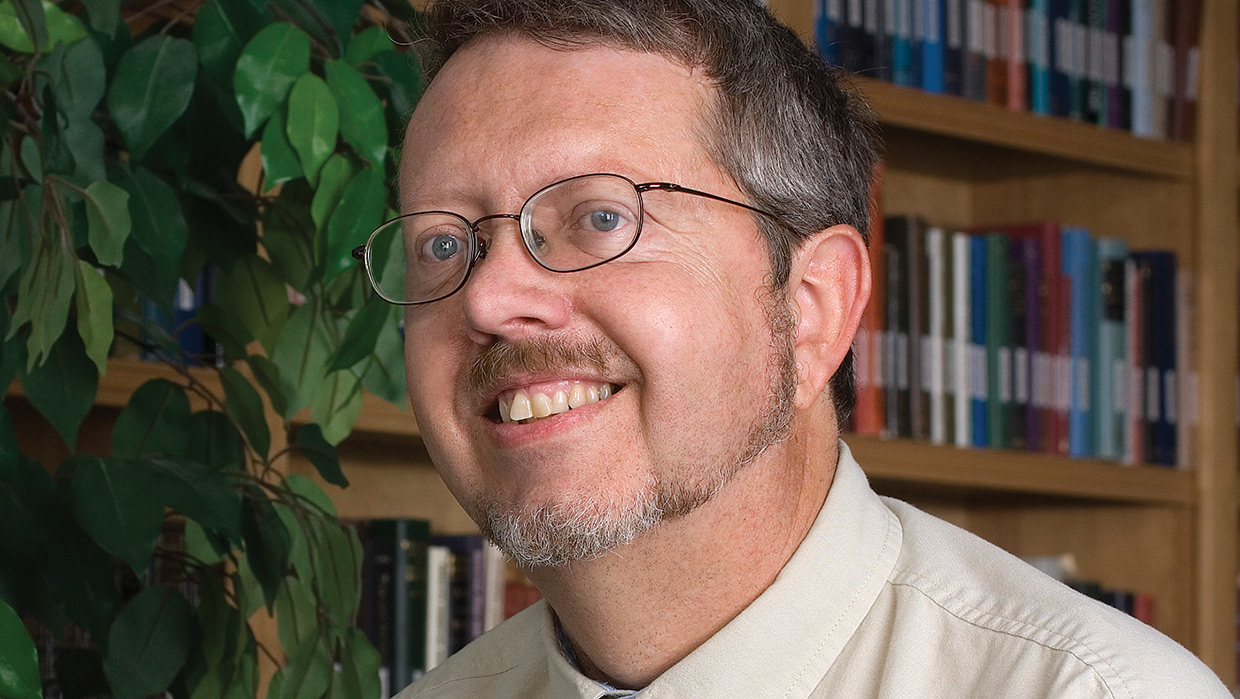The Bible gives a two-sided portrayal of wealth: It is good, but it can seduce us into sin. The solution, according to New Testament scholar Craig L. Blomberg, is to freely share it. In Christians in an Age of Wealth: A Biblical Theology of Stewardship (Zondervan), Blomberg, who teaches at Denver Seminary, argues that sacrificial giving is an essential part of good stewardship. He spoke with CT editor at large Rob Moll about our spending patterns and whether Christians are required to tithe.
Christians in an Age of Wealth: A Biblical Theology of Stewardship (Biblical Theology for Life)
Zondervan
272 pages
$21.84
If, as you argue, Christians are no longer bound by the Old Testament principle of tithing, what’s so bad about low rates of giving?
Over the past 40 years, self-identified evangelicals have given between 2 and 3 percent of their incomes to churches and Christian organizations. Stewardship is a crucial part of the Christian life, and according to these figures, it is sadly lacking.
Now, on any topic, we have to filter the Old Testament through the grid of Jesus’ and the apostles’ teaching. In Matthew 23:23, Jesus tells the Jewish leaders that they neglect the weightier things of the law, though they did tithe. This is often cited to claim that Jesus still promoted tithing. Yes, he did—for Jews still under the Mosaic Law.
This is in no way a command addressed to his followers to tithe. But the teachings in Acts, the Epistles, and Revelation offer a consistent call for generosity and sacrifice. When you look at American Christian spending patterns, it is sometimes difficult to see much sacrifice.
Why should we be ruthless about getting rid of surplus wealth? Doesn’t the notion of “redistribution” clash with much thinking on stewardship and economics?
I argue that it should be done voluntarily. The Old Testament Jubilee laws dictated a periodic redistribution. In the New Testament, however, giving is voluntary, although Christian leaders could make strong appeals for more generosity.
Still, those who take a conservative view of economics can be guilty of turning “redistribution” into a bogeyman. Everyone benefits from some form of redistribution. Northern Colorado, the area where I teach, experienced rain and flash flooding earlier this year. People have told me that FEMA is responding well. We appreciate that kind of redistribution.
I’m not calling on the rich to trade places with the poor. In 2 Corinthians 8:13 (“Our desire is … that there might be equality”), the word should be equity, meaning basic justice, not equality. Nevertheless, there is such a thing as too much as long as other people have too little.
Is materialism competing with God for the hearts of his people?
The Book of James famously says that faith without works is dead. What James adds to the key passage (2:18-26) comes immediately before it, in verses 14-17, which illustrate what a workless faith looks like. If a brother or sister needs food and clothing, and someone says “keep warm and well fed” but does nothing to help, James asks, “Can such faith save them?” The Greek terms he uses imply a negative answer.
The scary statistic is that 20 percent of self-identified evangelical churchgoers give nothing. It is reasonable to question their faith. If idolatry is what a person who claims belief in God actually gives allegiance to, does anything have greater idolatrous potential than material possessions?
How well are churches modeling sacrificial giving?
Churches need to apply to their own revenue streams the same principles that they encourage among members. If a church believes in the obligation to tithe, it needs to be contributing materially to the Lord’s work in the world. A significant portion of the church’s tithe should help the impoverished. Galatians 6:10 says to “do good to all people,” especially to the household of God. Then, we should make money available for evangelism and issues of justice.
I know churches that claim 10 percent as a good benchmark for their giving.
This might mean spending less on building and maintaining facilities, or cutting back on paid staff. The average American church employs far more people than it did 20 years ago. Can we really afford the luxury of paying people to do what historically laity has done? Does it keep Christians immature because they aren’t challenged to be involved?
I don’t want to generalize inappropriately, as the health and wealth proponents do, but it has been true that the more we give as a family in the Blomberg household, the more God has given us to give away.
Go to ChristianBibleStudies.com for “Give Sacrificially,” a Bible study based on this article.











